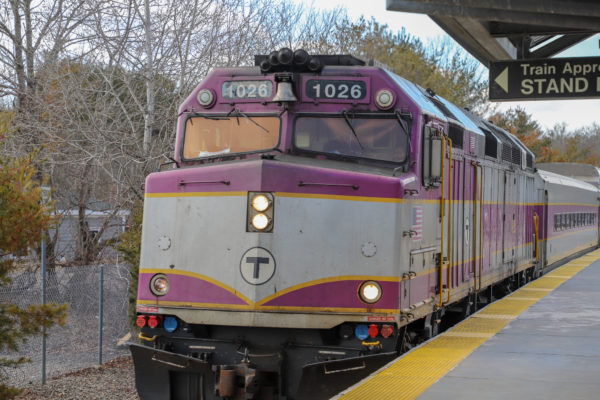
Train 041 arrives at Hanson Station from Boston on Tuesday, March 19, 2019. (Photo by Abram Neal)
In 1949, Jacqueline Steiner and Bess Lomax Hawes wrote the song made famous by the Kingston Trio about a man named Charlie stuck forever riding beneath the streets of Boston because he was a nickel short. Now, Charlie will have an even harder time coming up with his fare because the MBTA announced fare increases for the first time in three years last week.
Area riders can expect to pay more for their “T” trips beginning July 1. Local monthly commuter rail passes were hit hard by the hikes — increasing at a higher percentage rate than the overall system increase.
At a meeting of the MBTA’s Fiscal and Management Control Board March 11 the board approved an overall 5.8-percent increase in fares across the transit system after modifying a previous proposal tabled in January.
Bob Gray, a commuter from Duxbury, who disembarked from train 041 at Hanson Station said of the increase, “It’s more money,” but added, “It’s a good way to get into the city.”
Another rider, Shellie, of Pembroke, who works in Boston at a law firm and disembarked from the same train said, “Yeah, I’ll have to pay more … I’m not thrilled.”
The Whitman, Hanson and Halifax commuter rail stations are in fare zones five, six and seven, respectively.
One-way fares inbound or outbound to or from Boston will increase by 50 cents in each zone, from $9.25 to $9.75 or 5.4 percent in zone five (Whitman), from $10 to $10.50 or 5 percent in zone six (Hanson) and from $10.50 to $11 or 4.8 percent in zone seven (Halifax).
A monthly commuter rail pass will cost you an extra $19.50 in zone five (Whitman), up from $291.50 to $311 a month, an extra $22 in zone six (Hanson), up from $318 to $340 a month and an extra $19.50 in zone seven (Halifax), up from $336.50 to $360 a month.
This represents a yearly cost increase for a monthly commuter rail pass of $234 or 6.7 percent in zone five (Whitman), $264 or 6.9 percent in zone six (Hanson) and $282 or 6.9 percent in zone seven (Halifax).
The total yearly cost for a zone five pass will now be $3,732, a zone six pass will be $4,080 and a zone seven pass will be $4,320.
Local one-way bus fares, local monthly bus passes, reduced local bus and subway one-way fares and reduced monthly passes for seniors, TAP (those with disabilities), youth and students were spared the fare increase.
A local bus fare will remain $1.70, with a CharlieCard. A one-way subway ride will go up by 15 cents, from $2.25 to $2.40, with a CharlieCard.
The transit agency stated, “While the MBTA continues to focus on controlling costs and growing non-fare revenue, this increase, which is in line with the rate of inflation in the Boston area, is necessary for the Authority to continue making system investments to improve service.”
The MBTA website says that state law allows them to raise fares regularly but must limit those increases to every two years with no more than 7 percent for each increase. The MBTA has not raised fares since 2016. This increase is lower than the 6.3 percent increase originally proposed.
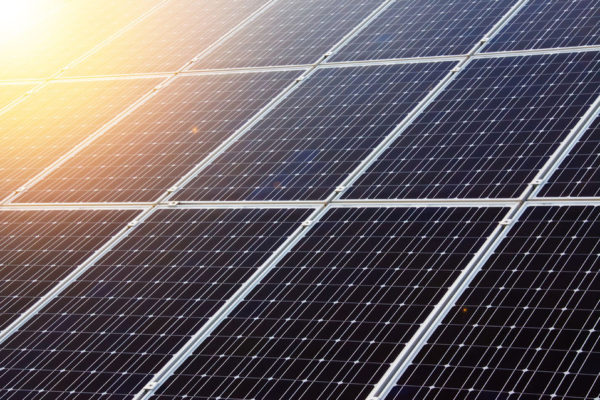
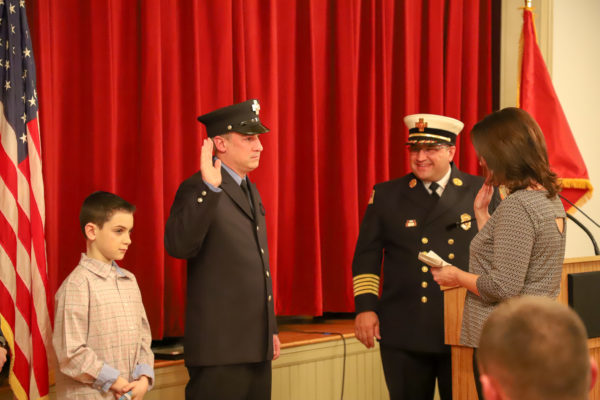
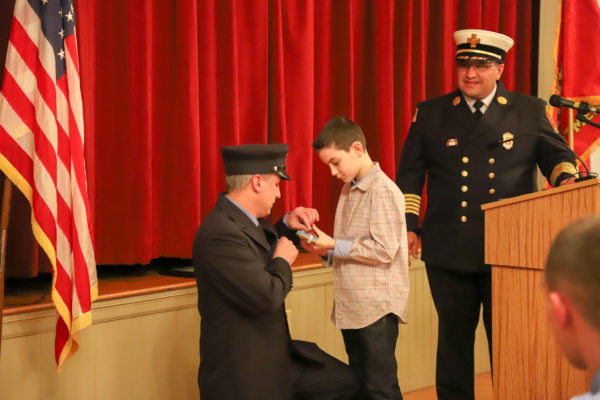
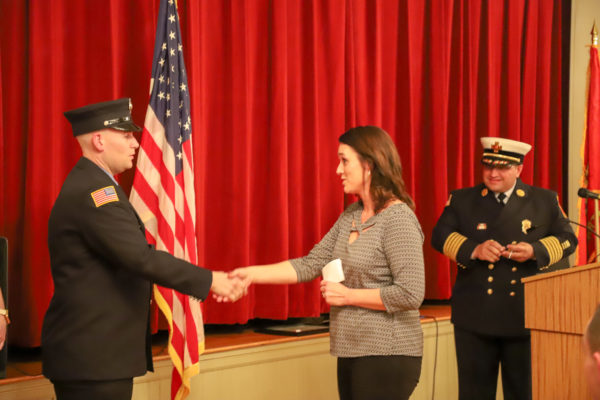
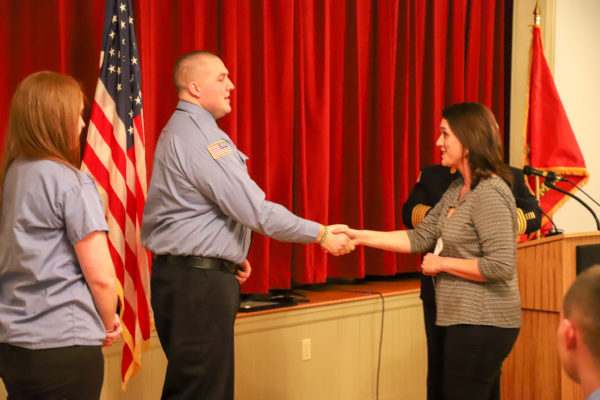
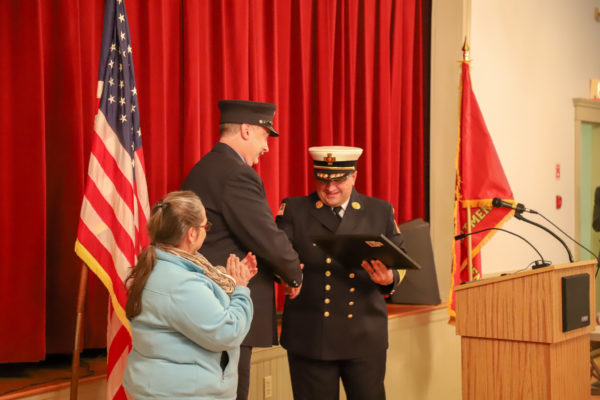
 Robert Tinkham, the current Plympton Health Agent, and another local public official, Ray Pickles, the Marion Town Clerk, have been indicted on larceny charges after a joint investigation by the Massachusetts Attorney General’s Office and the Massachusetts Office of the Inspector General into years-long mismanagement at the Carver, Marion and Wareham Regional Refuse Disposal District, according to state officials.
Robert Tinkham, the current Plympton Health Agent, and another local public official, Ray Pickles, the Marion Town Clerk, have been indicted on larceny charges after a joint investigation by the Massachusetts Attorney General’s Office and the Massachusetts Office of the Inspector General into years-long mismanagement at the Carver, Marion and Wareham Regional Refuse Disposal District, according to state officials.




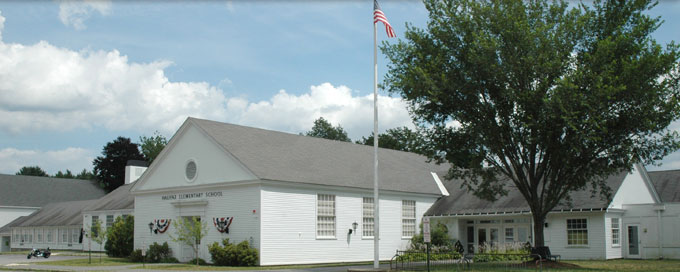 HALIFAX — A Special Town Meeting will be held on Monday, Feb. 25, at 7:30 p.m. in the Multi-Purpose Room of the Halifax Elementary School, 464 Plymouth Street. All registered voters from the town are encouraged to attend. Residents must have registered to vote at least ten days prior to the meeting in order to participate.
HALIFAX — A Special Town Meeting will be held on Monday, Feb. 25, at 7:30 p.m. in the Multi-Purpose Room of the Halifax Elementary School, 464 Plymouth Street. All registered voters from the town are encouraged to attend. Residents must have registered to vote at least ten days prior to the meeting in order to participate.